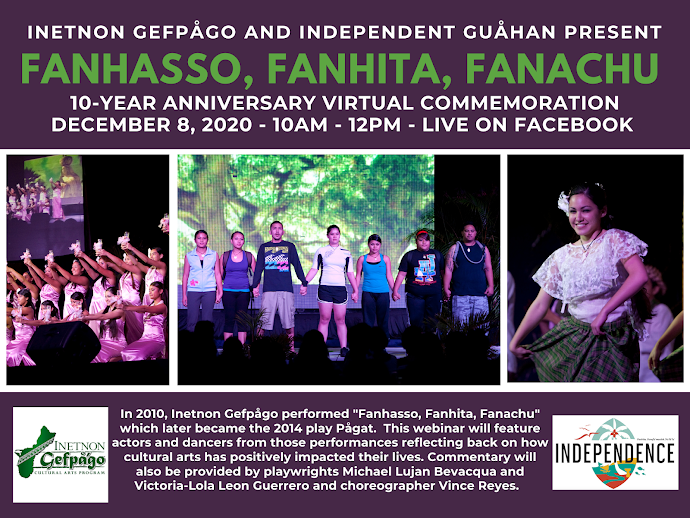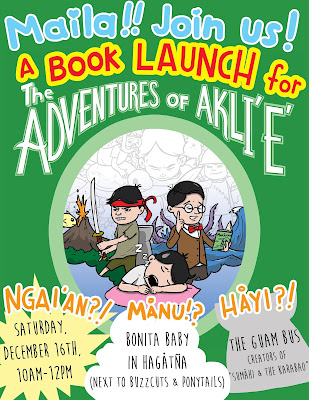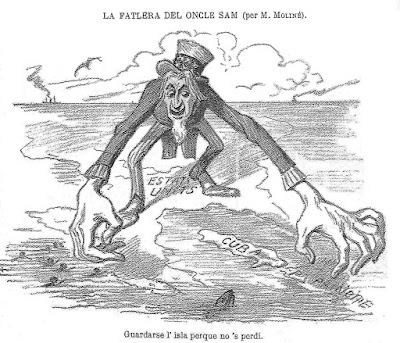Fanhasso - 10 Years Later

10 years ago the cultural arts group Inetnon Gefpågo premiered "Fanhasso, Fanhita, Fanachu" a musical journey through Guam History and Chamorro issues written by Michael Lujan Bevacqua and Victoria Leon Guerrero, with choreography by Vince Reyes. The musical was directed by Clifford Guzman. The cast was made up of island youth in the group Inetnon Gefpågo. Next Tuesday, December 8th, Inetnon Gefpågo and Independent Guåhan are holding a webinar to reflect back on the 10 years anniversary of this performance, which eventually was transformed into the play Pågat in 2014. The webinar will be live on the Facebook pages of Independent Guåhan and Inetnon Gefpågo from 10 am - noon on December 8th. To say that I'm excited about this webinar would be an understatement. I am elated to the point where words are starting to fall short of expression. The musical Fanhasso... was something I worked on with Victoria less than a year after starting teaching at UOG full-time and finish





